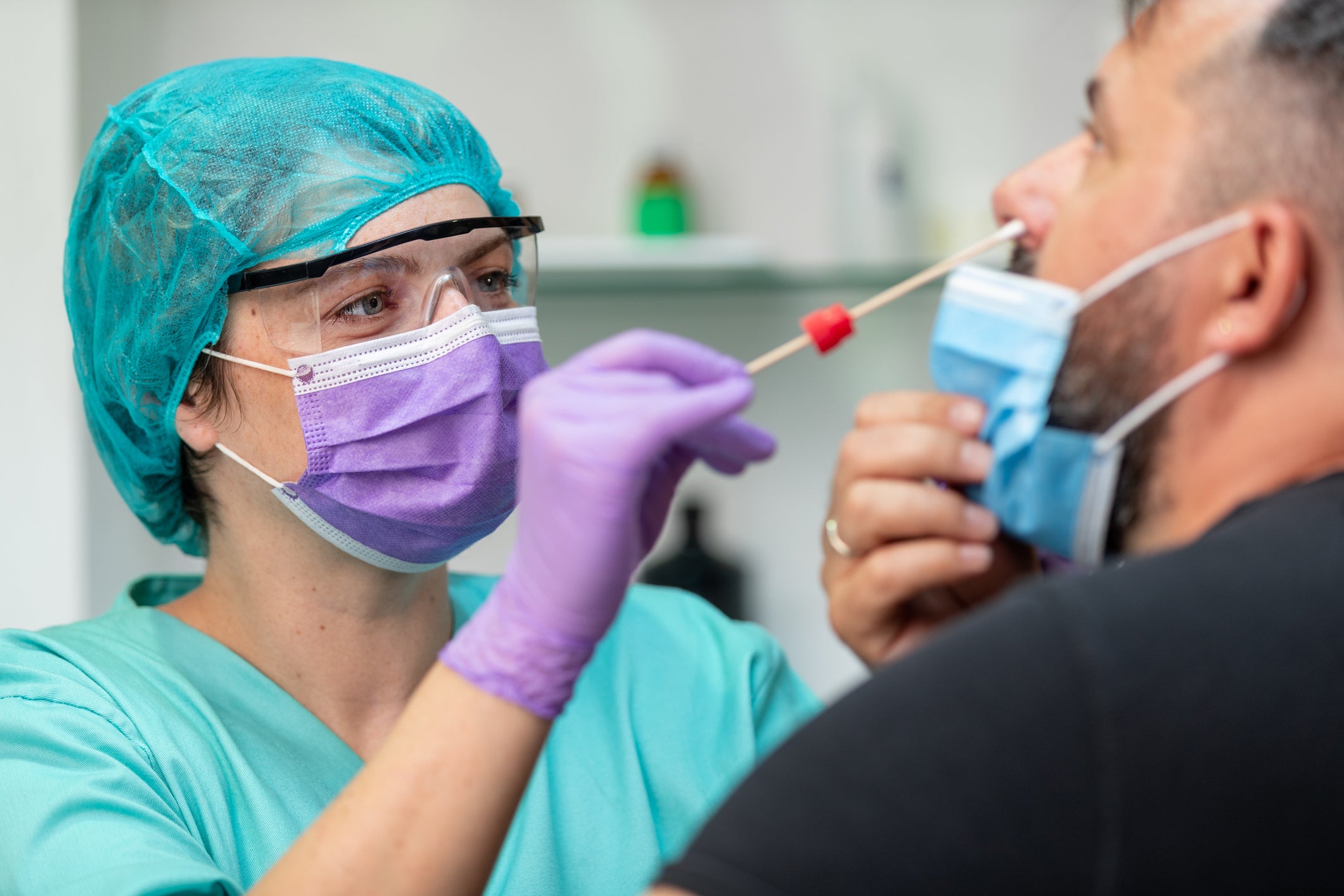Coronavirus: NHS tests will be capped at 100,000 a day
Hospitals will need prior approval from test and trace before launching their own testing

Your support helps us to tell the story
From reproductive rights to climate change to Big Tech, The Independent is on the ground when the story is developing. Whether it's investigating the financials of Elon Musk's pro-Trump PAC or producing our latest documentary, 'The A Word', which shines a light on the American women fighting for reproductive rights, we know how important it is to parse out the facts from the messaging.
At such a critical moment in US history, we need reporters on the ground. Your donation allows us to keep sending journalists to speak to both sides of the story.
The Independent is trusted by Americans across the entire political spectrum. And unlike many other quality news outlets, we choose not to lock Americans out of our reporting and analysis with paywalls. We believe quality journalism should be available to everyone, paid for by those who can afford it.
Your support makes all the difference.The government has confirmed plans to cap NHS testing for the coronavirus, with hospitals limited to carrying out 100,000 tests a day.
On Friday, The Independent revealed that NHS hospitals had been told by NHS England not to launch their own testing of staff and patients unless they had prior approval from the national test and trace service, led by Baroness Dido Harding.
If hospitals did go ahead and test for the virus without approval, the capped budget imposed by the Department of Health and Social Care (DHSC) means that they would not be reimbursed for the spending and would have to meet the costs from their own budgets.
The DHSC has now confirmed to The Independent that the maximum budget in place for NHS testing will allow for up to 100,000 tests a day.
This is part of expansion plans to reach a total of 500,000 tests a day for Covid-19 by the end of October.
The DHSC insisted there was money available for hospitals to expand testing, with current capacity in the NHS at about 55,000 tests a day.
Hospital laboratories will need to follow the NHS guidance and be approved by the test and trace service.
The DHSC said all NHS labs should use the agreed protocols before launching their own testing, and added that existing pathology networks would decide which labs will be allowed to increase testing based on where it would be most effective to boost capacity.
It said there was a funding budget for 100,000 tests a day, with the maximum that could be spent imposed to ensure value for money.
Previously, hospitals were able to retrospectively claim back costs for testing and other expenses in responding to Covid-19 after the chancellor, Rishi Sunak, promised that the health service would get whatever it needed.
New NHS England guidance with effect from 1 October makes clear that there is now a limited budget for testing and that it expects hospitals to spend within the limits agreed.
Some hospital labs have complained that they have been stopped from expanding their own testing by NHS England, which has been under pressure to deliver more testing under the government’s “pillar one” response to the virus.
The coronavirus testing regime has been criticised in recent weeks with reports that patients and hospital staff have been unable to get tests or, in some cases, have been offered slots hundreds of miles from where they live.
Under plans to ration tests to those most in need, the government confirmed yesterday that patients with symptoms, and medical workers such as nurses and doctors, would be given priority for tests.
A spokesperson for the DHSC said: “There is significant funding for NHS labs to increase capacity and there are tests available for NHS staff and patients who need them.
“It’s common practice to provide funding up to a specific amount to ensure value for money for taxpayers.
“Since the beginning of this pandemic, we have prioritised testing for health and care workers, with staff in hospitals able to access a test through their trust, and the health secretary Matt Hancock has made clear in parliament that the top priority for testing are those in acute clinical care.”
The secretary of state told MPs that testing would be concentrated first on patients in hospital needing clinical care, followed by care home residents.
The next level of priority would be NHS staff, including GPs and pharmacists, followed by testing in targeted hotspot areas, then teachers and then the general public with symptoms, prioritised by areas with the highest levels of infection.
He added: “The testing capacity we have is valuable. And we must, together, prioritise it for the people who need it the most.”



Join our commenting forum
Join thought-provoking conversations, follow other Independent readers and see their replies
Comments